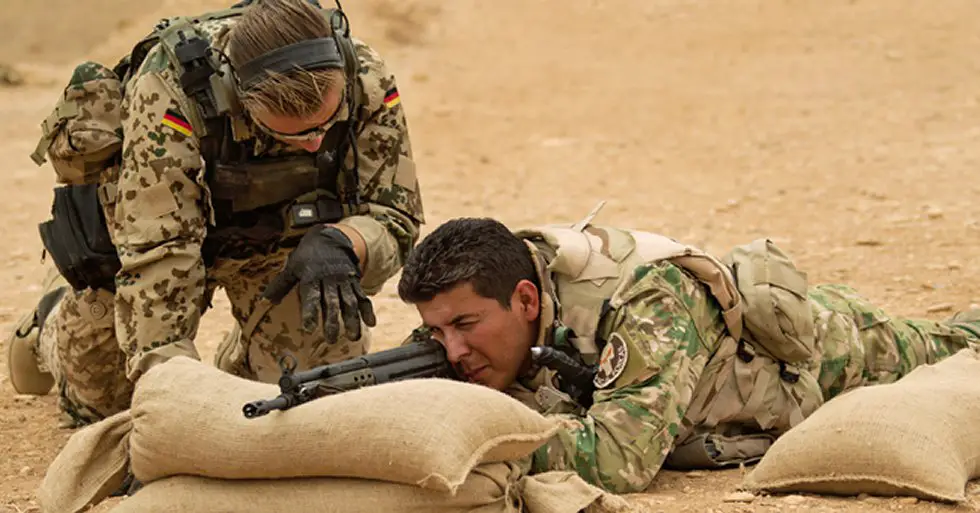Breaking news
Bundeswehr to expand training mission and advice in Iraq.
Germany wants to protect the fragile progress made in Iraq. In that line of conduct, the Bundeswehr is set to expand its training program for Kurdish fighters to all security forces in Iraq. Training Iraqi Kurds is less sensitive than supplying assistance to Syrian Kurds but who can guarantee there aren't any know-how and weapons "transfer"?

Kurdish Peshmergas have been trained by Bundeswehr instructors for several years (Picture source : Bundesregierung/German Government)
The German army will work to build up security forces loyal to Baghdad by advising Iraq's defense ministry and providing its troops with training, German Defense Minister Ursula von der Leyen told lawmakers on 15 February.
The parliament in Berlin is discussing the continuation of Germany’s main military missions, which include those in Iraq and Afghanistan. With the support of the ruling coalition, Germany's Bundeswehr is virtually guaranteed to continue its deployment in both countries.
During her speech, von der Leyen announced major changes to Germany's training program for the Kurdish Peshmerga fighters. Instead of training Kurdish forces in northern Iraq to fight the Islamic State (IS), German soldiers will expand the training program to the entire country, with focus on Baghdad. Also, instead of providing basic combat training, Bundeswehr is set to teach its local allies skills like sweeping mines, field medicine, and defense against biological and chemical weapons. They would also help with setting up military schools and training military trainers. So, in future, we will stand on two feet in Iraq, with one of them in [Kurdish-populated] Irbil, the other close to Baghdad," the minister said.
Germany had been supplying Kurdish forces in Iraq with weapons, including 24,000 assault rifles and around 1,200 anti-tank missiles, for their fight against IS. The deliveries ended with the IS' defeat last summer, according to von der Leyen. "We will be delivering exclusively non-lethal material to Iraq," such as medical supplies or mine-sweeping equipment, she told lawmakers.
Germany's new Foreign Minister Heiko Maas also urged MPs to protect the hard-won progress on Iraqi security. German troops need to preserve "our fragile success," he said. "A premature end to our efforts would be precisely the wrong signal at this point."
Interestingly, nor Heiko Maas, nor Ursula von Leyen mention the major change of situation created by the Turkish army’s victory in the Afrin enclave now lost by the Kurds, a victory that, according to president Erdogan’s own words, was only a stage toward the creation of a wide Turkish-controlled zone along the entire border between Syria and Turkey, where all the Syrian refugees could be resettled.



















